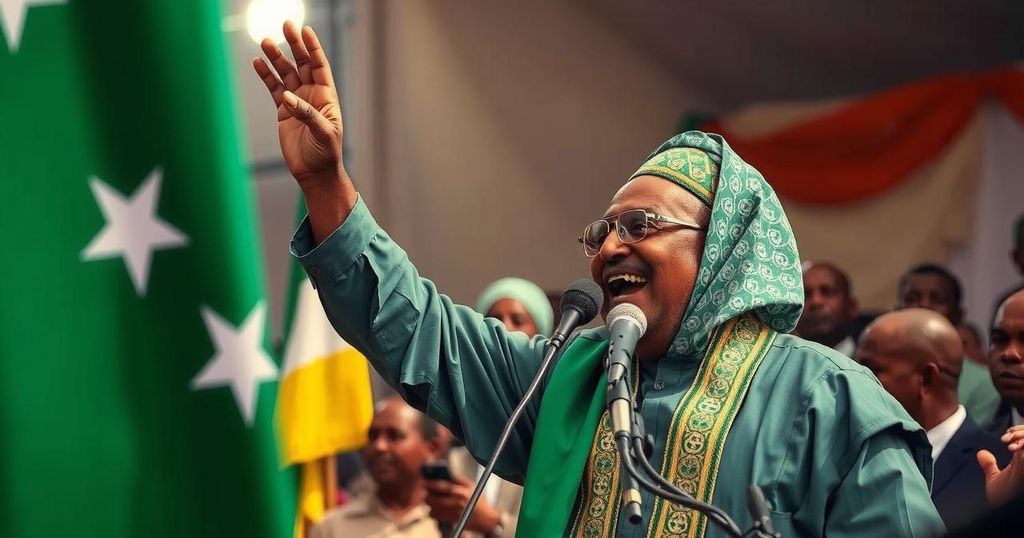Abdullahi Wins Somaliland Presidential Election, Aims for International Recognition
Abdirahman Mohamed Abdullahi, also known as Irro, has been elected president of Somaliland with approximately 64 percent of the vote, defeating incumbent President Muse Bihi Abdi. His election comes at a time of heightened efforts to gain international recognition for Somaliland and amid complex geopolitical discussions involving Ethiopia. The election was crucial to address the region’s economic challenges and foster a stable governance structure.
The recent presidential election in Somaliland has resulted in a significant victory for Abdirahman Mohamed Abdullahi, also known as Irro, the opposition leader of the Waddani Party. Abdullahi received approximately 64 percent of the vote, defeating the incumbent President Muse Bihi Abdi from the Kulmiye Party, who garnered only about 35 percent. This election, delayed for two years due to financial constraints and other issues, is pivotal for Somaliland as it seeks greater international recognition and strives to improve its economy amidst ongoing challenges. Following the elections, Abdullahi announced his commitment to pursuing international acknowledgment for Somaliland, a region that has functioned independently since declaring its independence in 1991 while remaining unrecognized globally. Somaliland has established a relatively stable governance structure compared to the broader Somali territory, which continues to face significant security challenges. It operates its own government, currency, and security apparatus despite lacking recognition from other nations, which hampers its international financial relations and the movement of its citizens. Furthermore, the recent elections have coincided with discussions regarding a controversial agreement with Ethiopia, which would allow Ethiopian access to maritime routes in exchange for participating in Somaliland’s recognition efforts. This deal has raised tensions in Somalia, enhancing fears that it may threaten the region’s stability. In the context of the U.S. political landscape, there is an emerging sense of optimism that the new administration may reconsider its long-standing recognition of Mogadishu’s sovereignty over Somaliland. Several former U.S. officials engaged in African foreign policy during the Trump administration have expressed support for Somaliland’s quest for recognition, indicating potential shifts in international dynamics as this newly elected leadership embarks on its agenda.
Somaliland is a self-declared republic that has existed independently since 1991, following years of civil strife in Somalia. Despite establishing a stable political environment, it remains unrecognized by any sovereign state, which restricts its access to international funding and complicates travel for its citizens. The recent elections are critical for the governance of Somaliland and its quest for greater autonomy in the face of geopolitical complexities, particularly regarding its relations with Ethiopia and Somalia. The incoming administration under President Abdullahi is expected to prioritize international diplomatic efforts that could lead to formal recognition.
The election of Abdullahi as president marks a crucial juncture for Somaliland. With a strong mandate from the electorate, he is poised to pursue diplomatic initiatives to enhance recognition for the breakaway region while managing internal economic challenges. As the political landscape evolves, Somaliland will continue to navigate its unique position amid the regional dynamics shaped by its relationships with Somalia and Ethiopia. This changing environment, alongside potential shifts in U.S. policy, could significantly impact Somaliland’s future trajectory.
Original Source: www.aljazeera.com




Post Comment